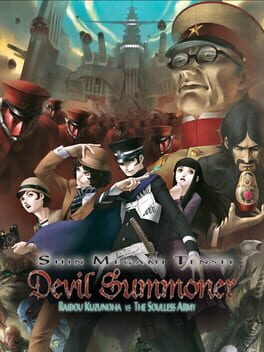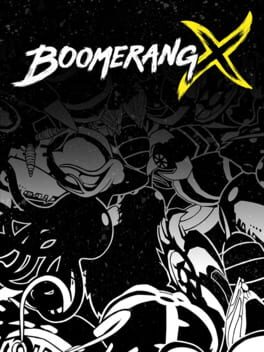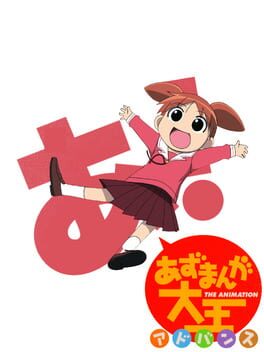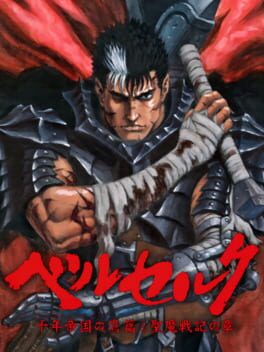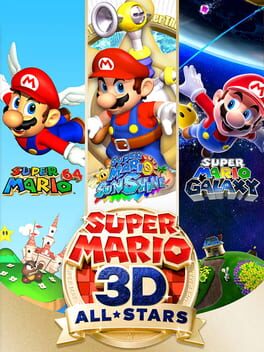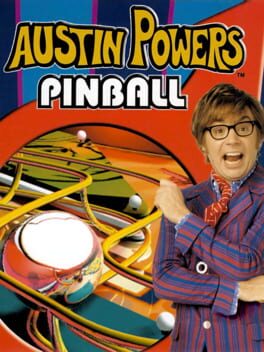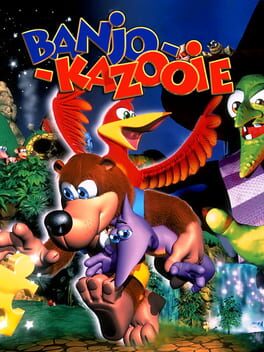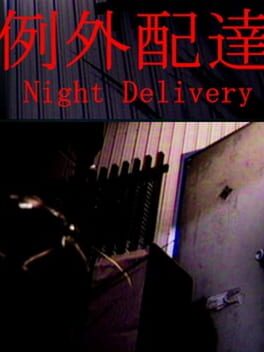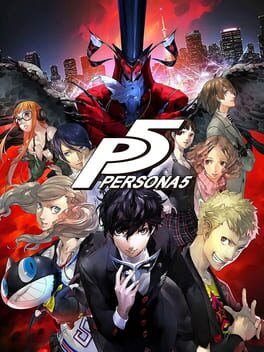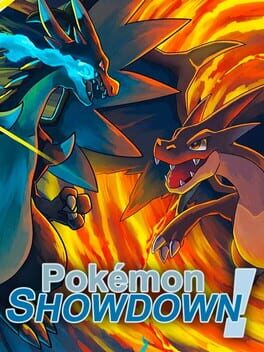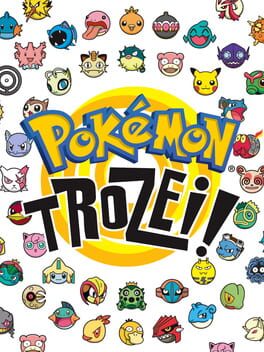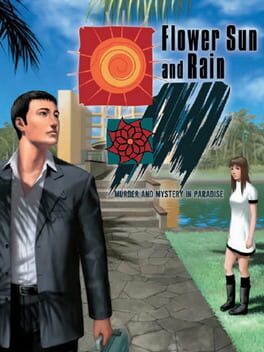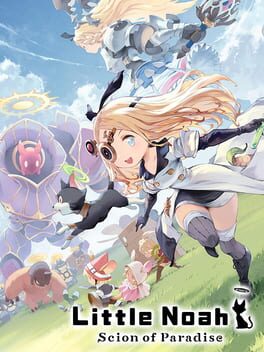6036 Reviews liked by MobileSpider
Shin Megami Tensei Devil Summoner: Raidou Kuzunoha vs The Soulless Army is a very long title, so for levity's sake, I'll refer to it as "Raidou 1" from here on out.
Taking place in the Taisho Era (that's the "Roaring 20's" for us American dogs), you play as the 14th designated inheritor of the title of "Raidou Kuzunoha". As part of the Narumi Detective Agency, you take on the stranger, more demonic cases brought to your attention. You go around town, talking to people, using your demons' powers to get further reactions out of the populace. You can also send your demons out solo, to get past the unaware humans or reach areas that Raidou can't get to. Some of the more innocent demons refer to this as "playing detective", which is the cutest thing ever.
The world is presented via pre-rendered backdrops with fixed camera angles. The Taisho era definitely gives this game an atmosphere that no other Megaten game has. This game has my favorite "Cathedral of Shadows/Goumaden" of the whole franchise, literally a mad scientist's laboratory. I really like how expressive Kazuma Kaneko's character designs get to be in this game. Shoji Meguro accompanies this world with one of his funkiest, jazziest soundtracks ever. It kinda feels like he brought his signature Persona vibes over to this title, giving us some perfect tunes for a detective on the beat, or a summoner in battle.
Of all the SMT games out there, one mostly universal constant is the demons providing quirky dialogue to offset the dark tones that the games typically thrive on. Raidou 1 stands out from the crowd by having a fairly quirky tone all throughout, and in turn is one of the most amusing SMT games I've ever played. When investigating, NPCs have consistently enjoyable dialogue, and you can draw even funnier dialogue out by using a demon's skills on them. There are moments where the game has you do "demon negotiation" as a gag, seeing as Raidou's typical way of making friends is confining them into test tubes. The tone is a lot more lighthearted than most SMT titles, but it does know when and how to reel things back in, get serious, and keep you invested.
Also unlike most SMT games, Raidou 1 is a real-time action game. Raidou wields a blade and a gun, but unfortunately, this is no Devil May Cry. All you get is a three-hit combo, a lunge attack, and a spin attack. None of it really chains together, and combat feels really stiff overall. The bullets you can shoot come in many different elemental varieties, and are mostly used to hit an enemy's weakness, opening them up for more damage via your sword strikes. Raidou can also guard with his blade, integral to survival. Being a Devil Summoner(TM), Raidou can summon one of his demons to fight by his side in battle. Their helpfulness can go either way, if I'm being honest. If you're attacking efficiently as Raidou, you'll often end up pushing your demon's targeted enemy juuuust out of the range of their attack, due to long windup animations. There were times where I tried to attack the enemy in a way that wouldn't squander my demon's attacks, but that felt like a makeshift solution to a problem that shouldn't have been there to begin with. I also found that giving a demon a healing skill activates a very dominant strategy: tanking all damage and letting your demon heal you. To be fair, if your demons aren't attacking effectively, putting them on eternal support mode isn't the worst idea, but it kinda locks off gameplay potential. Lastly, when a demon is sent out on a solo investigation, you actually have full control over that demon during random encounters, which is pretty novel for an SMT game, spinoff or otherwise.
I think the big hangup with the combat comes from the pacing. If this were a turn-based SMT, I would likely be at the edge of my fucking seat for every turn of battle, even if the fight took upwards of 20-30 minutes. When you shift to real-time action, you shouldn't keep enemy health pools that large. Repetition and tedium set in really fast when you're required to be directly involved in combat at all times. Several bosses feel like they go on for far too long, really just boiling down to becoming a war of attrition. I admit that it's entirely possible that I just wasn't playing the game right, and didn't fuse the powerful demons I should've had at that point. One problem with that: You can only fuse demons that you have max loyalty with. This feels like a pointless extra step that only serves to enable more grinding. Furthermore, I tried to keep a party of demons that would allow me access to as many field skills as possible at any time, partly because I enjoy all the flavor text, but also because you never know when a field skill will be mandatory for progression. Fusing demons did in fact lead me to hit a roadblock like that on more than one occasion. I may also just be directionally challenged, but I found the overworld map very confusing. A lot of train fares were wasted on me not remembering which area was called what, and not knowing where to go next.
Raidou Kuzunoha VS. The Soulless Army is definitely a game of ups and downs, but for the most part, I was delighted by this title every step of the way. It's just unfortunate that its roughest spots are kind of the most critical ones. This game has been mentioned quite a bit in Atlus's customer surveys as of late, possibly testing the waters for a potential remake. Raidou 1's rough spots could probably be ironed out with a good remake, or perhaps......a sequel.
Taking place in the Taisho Era (that's the "Roaring 20's" for us American dogs), you play as the 14th designated inheritor of the title of "Raidou Kuzunoha". As part of the Narumi Detective Agency, you take on the stranger, more demonic cases brought to your attention. You go around town, talking to people, using your demons' powers to get further reactions out of the populace. You can also send your demons out solo, to get past the unaware humans or reach areas that Raidou can't get to. Some of the more innocent demons refer to this as "playing detective", which is the cutest thing ever.
The world is presented via pre-rendered backdrops with fixed camera angles. The Taisho era definitely gives this game an atmosphere that no other Megaten game has. This game has my favorite "Cathedral of Shadows/Goumaden" of the whole franchise, literally a mad scientist's laboratory. I really like how expressive Kazuma Kaneko's character designs get to be in this game. Shoji Meguro accompanies this world with one of his funkiest, jazziest soundtracks ever. It kinda feels like he brought his signature Persona vibes over to this title, giving us some perfect tunes for a detective on the beat, or a summoner in battle.
Of all the SMT games out there, one mostly universal constant is the demons providing quirky dialogue to offset the dark tones that the games typically thrive on. Raidou 1 stands out from the crowd by having a fairly quirky tone all throughout, and in turn is one of the most amusing SMT games I've ever played. When investigating, NPCs have consistently enjoyable dialogue, and you can draw even funnier dialogue out by using a demon's skills on them. There are moments where the game has you do "demon negotiation" as a gag, seeing as Raidou's typical way of making friends is confining them into test tubes. The tone is a lot more lighthearted than most SMT titles, but it does know when and how to reel things back in, get serious, and keep you invested.
Also unlike most SMT games, Raidou 1 is a real-time action game. Raidou wields a blade and a gun, but unfortunately, this is no Devil May Cry. All you get is a three-hit combo, a lunge attack, and a spin attack. None of it really chains together, and combat feels really stiff overall. The bullets you can shoot come in many different elemental varieties, and are mostly used to hit an enemy's weakness, opening them up for more damage via your sword strikes. Raidou can also guard with his blade, integral to survival. Being a Devil Summoner(TM), Raidou can summon one of his demons to fight by his side in battle. Their helpfulness can go either way, if I'm being honest. If you're attacking efficiently as Raidou, you'll often end up pushing your demon's targeted enemy juuuust out of the range of their attack, due to long windup animations. There were times where I tried to attack the enemy in a way that wouldn't squander my demon's attacks, but that felt like a makeshift solution to a problem that shouldn't have been there to begin with. I also found that giving a demon a healing skill activates a very dominant strategy: tanking all damage and letting your demon heal you. To be fair, if your demons aren't attacking effectively, putting them on eternal support mode isn't the worst idea, but it kinda locks off gameplay potential. Lastly, when a demon is sent out on a solo investigation, you actually have full control over that demon during random encounters, which is pretty novel for an SMT game, spinoff or otherwise.
I think the big hangup with the combat comes from the pacing. If this were a turn-based SMT, I would likely be at the edge of my fucking seat for every turn of battle, even if the fight took upwards of 20-30 minutes. When you shift to real-time action, you shouldn't keep enemy health pools that large. Repetition and tedium set in really fast when you're required to be directly involved in combat at all times. Several bosses feel like they go on for far too long, really just boiling down to becoming a war of attrition. I admit that it's entirely possible that I just wasn't playing the game right, and didn't fuse the powerful demons I should've had at that point. One problem with that: You can only fuse demons that you have max loyalty with. This feels like a pointless extra step that only serves to enable more grinding. Furthermore, I tried to keep a party of demons that would allow me access to as many field skills as possible at any time, partly because I enjoy all the flavor text, but also because you never know when a field skill will be mandatory for progression. Fusing demons did in fact lead me to hit a roadblock like that on more than one occasion. I may also just be directionally challenged, but I found the overworld map very confusing. A lot of train fares were wasted on me not remembering which area was called what, and not knowing where to go next.
Raidou Kuzunoha VS. The Soulless Army is definitely a game of ups and downs, but for the most part, I was delighted by this title every step of the way. It's just unfortunate that its roughest spots are kind of the most critical ones. This game has been mentioned quite a bit in Atlus's customer surveys as of late, possibly testing the waters for a potential remake. Raidou 1's rough spots could probably be ironed out with a good remake, or perhaps......a sequel.
Boomerang X
2021
Awesome little movement/arena shooter, it's exactly what you'd expect and hope it is. Stylish art with unique looks for each arena, tight mechanics that adds complexity in a way that's slight enough to manage with the quick pace, enemy variety without getting too annoying or straying from the main gameplay. My only real complaint here is that it's really short. Cleared it in 90 minutes, and it wasn't really challenging until near the end. There are NG+ and endless modes, but despite really enjoying this those just don't seem like the type of thing I'd get into for this game, might give them a shot in the future though if I get the itch for this again.
I really want to rate this higher because it does some really amazing stuff for berserk fans but the levels are too fucking big in the second half of the game. If the hide and seek level and qlipoth level were a quarter of their size so they didn't feel like the game is wasting my time to extend the run time it would easily be a 4.5
Austin Powers Pinball features two tables. International Man of Mystery and The Spy Who Shagged Me. I remember watching an interview for Austin Powers 2 in a little Sky Interactive window about a hundred times. I would have been about 12 or 13 and very insecure about puberty. Hearing that Austin had lost his "Mojo" had me looking up the word in the dictionary, which told me it meant something like "sexual prowess". I didn't really understand and assumed the film was about Austin Powers being castrated against his will. I still have not seen Austin Powers 2.
When you first play Austin Powers Pinball, you will attempt to figure out which buttons are used to control the flippers. Pressing anything other than the correct ones will warn you that you have "tilted" the board and will lock you out of playing until your ball falls down the hole.
If you register your copy of Austin Powers Pinball with Take 2 Interactive, you will be entered into their free prize draw to win £100. Imagine what you'd spend that on!
When you first play Austin Powers Pinball, you will attempt to figure out which buttons are used to control the flippers. Pressing anything other than the correct ones will warn you that you have "tilted" the board and will lock you out of playing until your ball falls down the hole.
If you register your copy of Austin Powers Pinball with Take 2 Interactive, you will be entered into their free prize draw to win £100. Imagine what you'd spend that on!
Shenmue
1999
shenmue may require no introduction, but it's amusing for me to have played so many of suzuki's games beforehand...they're all these exceptionally spirited games preoccupied with total acceleration, scenic vistas, the simple pleasures of competition (whether inward or external). their pace and their fixations are romantic and idealized, representing a striking antithesis to shenmue's monotony. just about the only thing that matches shenmue's dreamy sense of melancholy is outrun's results screen.
while suzuki's prior obsessions & formal language might ironically seem entirely absent from shenmue, im not sure this is a completely accurate assessment. ryo might be a slave to time, but just as in outrun, super hang-on, space harrier, etc, his path is pre-determined, foretold by prophecy. he has no choice but to staunchly and pragmatically follow his compulsions. a discordant sense of urgency underscores and animates his every action, and you can see his internal frustrations with the mundane & lackadaisical rhythms of his neighbours. ryo's a shark, all he knows how to do is move forward. reality might suffocate him otherwise.
iwao hazuki's last words to his son are pleading with him to keep his friends and family close to him; the rest of shenmue is a quietly straining, slow-brewing tragedy as ryo does the exact opposite. he's alienated and alone; his family never quite knows how to effectively respond to and treat his grief; he distances himself from peers, structure, romantic interests. he is made painfully aware of every passing minute of every day, but he fails to truly understand or comprehend the weight of time and of his life in yokosuka as a whole. people care about him, but he's distant & removed, and eventually they figure it may be for the best to let such a headstrong young man go his own way. ryo's defining contradiction is a naïveté characteristic of his youth at odds with his relentless drive to make forward progress. he has this unspoken expectation that yokosuka is comprised of unchanging and permanent fixtures, that things will be the same as he left them upon his return, but everything around him explicitly and implicitly signals the obvious: people, locales, and contexts change. over the course of the game ryo runs into a hot dog vendor named tom constantly, someone whose vibrance and zest for life marks him as distinct and dissimilar from ryo. he's content and lively in a way that is alien to ryo. near the end of the game, he learns that tom a.) has surprising martial arts prowess and b.) has been planning to leave yokosuka for quite some time. ryo is taken aback by this information, but it was no secret - ryo simply never asked. by the time ryo makes his way to hong kong, so much has been left unsaid. even he, for a brief moment, just beginning to grasp the gravity of his decisions, wishes he had more time.
it's an excellent game, filled to the brim with quietly devastating scenes and working with subtlety that seems unmatched compared to contemporary AAA experiences... while many cite shenmue as a game that has aged, or only has value from an innovative perspective, its deliberate and measured inclinations reveal just the opposite: that games today have regressed, and have only taken the wrong lessons from shenmue.
while suzuki's prior obsessions & formal language might ironically seem entirely absent from shenmue, im not sure this is a completely accurate assessment. ryo might be a slave to time, but just as in outrun, super hang-on, space harrier, etc, his path is pre-determined, foretold by prophecy. he has no choice but to staunchly and pragmatically follow his compulsions. a discordant sense of urgency underscores and animates his every action, and you can see his internal frustrations with the mundane & lackadaisical rhythms of his neighbours. ryo's a shark, all he knows how to do is move forward. reality might suffocate him otherwise.
iwao hazuki's last words to his son are pleading with him to keep his friends and family close to him; the rest of shenmue is a quietly straining, slow-brewing tragedy as ryo does the exact opposite. he's alienated and alone; his family never quite knows how to effectively respond to and treat his grief; he distances himself from peers, structure, romantic interests. he is made painfully aware of every passing minute of every day, but he fails to truly understand or comprehend the weight of time and of his life in yokosuka as a whole. people care about him, but he's distant & removed, and eventually they figure it may be for the best to let such a headstrong young man go his own way. ryo's defining contradiction is a naïveté characteristic of his youth at odds with his relentless drive to make forward progress. he has this unspoken expectation that yokosuka is comprised of unchanging and permanent fixtures, that things will be the same as he left them upon his return, but everything around him explicitly and implicitly signals the obvious: people, locales, and contexts change. over the course of the game ryo runs into a hot dog vendor named tom constantly, someone whose vibrance and zest for life marks him as distinct and dissimilar from ryo. he's content and lively in a way that is alien to ryo. near the end of the game, he learns that tom a.) has surprising martial arts prowess and b.) has been planning to leave yokosuka for quite some time. ryo is taken aback by this information, but it was no secret - ryo simply never asked. by the time ryo makes his way to hong kong, so much has been left unsaid. even he, for a brief moment, just beginning to grasp the gravity of his decisions, wishes he had more time.
it's an excellent game, filled to the brim with quietly devastating scenes and working with subtlety that seems unmatched compared to contemporary AAA experiences... while many cite shenmue as a game that has aged, or only has value from an innovative perspective, its deliberate and measured inclinations reveal just the opposite: that games today have regressed, and have only taken the wrong lessons from shenmue.
Banjo-Kazooie
1998
I don't really have a funny anecdote or some sincere personal history with this game to overshare. I rented it once as a kid and I hated it, then I went most of my whole adult life until a few years ago not really thinking about Banjo-Kazooie at all. When I committed to building a physical N64 collection, I wanted to be thorough. Anything I had played as a kid or that was generally associated with the N64 in particular? Well, I was going to pick that up.
Mostly I think Banjo-Kazooie is mediocre, but I was never enamored with the collect-a-thon genre to begin with. Even during their heyday I was pretty upset that platformers had largely shifted focus from having well designed levels that drove the player forward to sandboxes full of collectables you had to tick off a checklist. But people ate this shit up, and Rare was always ready with another heaping spoonful of slop.
Banjo-Kazooie is at least the least offensive collect-a-thon I've played that doesn't have "Mario" in the title. Rare's unique sense of humor shines through as always, and aesthetically it's not hard to see why people fall for Banjo-Kazooie's charm. It's a pretty good looking game for the N64, and if you hate Grant Kirkhope's excellent soundtrack then I'm afraid I need to check to see if you actually have warm blood running through your veins.
It then almost goes without saying that most of my issues are with the gameplay. This criticism is one that can largely be blown up to encapsulate my issues with the genre as a whole, but I just don't find the structure of these games to be appealing. Running around and initiating dull little minigames to get yet another jiggy isn't my idea of a good time. Having to collect every musical note in one smooth run only highlights some of the design shortcomings of some stages and amplify control and camera issues, and yeah maybe this one is on me trying to get 100% completion knowing full well all it unlocks is an advertisement for a cut feature.
I did really enjoy the gameshow sequence, and while I think there is just a bit too much fat with the amount of things you have to collect, it is comparatively a much more focused game than its sequel.
I am out of things to say about this fucking video game.
Mostly I think Banjo-Kazooie is mediocre, but I was never enamored with the collect-a-thon genre to begin with. Even during their heyday I was pretty upset that platformers had largely shifted focus from having well designed levels that drove the player forward to sandboxes full of collectables you had to tick off a checklist. But people ate this shit up, and Rare was always ready with another heaping spoonful of slop.
Banjo-Kazooie is at least the least offensive collect-a-thon I've played that doesn't have "Mario" in the title. Rare's unique sense of humor shines through as always, and aesthetically it's not hard to see why people fall for Banjo-Kazooie's charm. It's a pretty good looking game for the N64, and if you hate Grant Kirkhope's excellent soundtrack then I'm afraid I need to check to see if you actually have warm blood running through your veins.
It then almost goes without saying that most of my issues are with the gameplay. This criticism is one that can largely be blown up to encapsulate my issues with the genre as a whole, but I just don't find the structure of these games to be appealing. Running around and initiating dull little minigames to get yet another jiggy isn't my idea of a good time. Having to collect every musical note in one smooth run only highlights some of the design shortcomings of some stages and amplify control and camera issues, and yeah maybe this one is on me trying to get 100% completion knowing full well all it unlocks is an advertisement for a cut feature.
I did really enjoy the gameshow sequence, and while I think there is just a bit too much fat with the amount of things you have to collect, it is comparatively a much more focused game than its sequel.
I am out of things to say about this fucking video game.
Night Delivery
2021
Persona 5
2016
Yume Nikki
2004
Pokémon Showdown
2011
Pokémon Trozei!
2005
I'm gonna launch a stealth sequel to a game that won't come out in the west for another 8 years. I don't think this game can properly receive a rating. Possibly the most important piece of an unraveling tapestry.
My sculpture teacher told me that his favorite form of art was the kind that involved people just walking around. There were many exercises in class that involved us just picking a direction to walk and going that way. He told me that art, in essence, is a translation. It is the language through which all experiences are spoken.
FSR made me think of what it meant to be a player, a creator, and a human being. Nothing before or since has come close to doing what this game does.
My sculpture teacher told me that his favorite form of art was the kind that involved people just walking around. There were many exercises in class that involved us just picking a direction to walk and going that way. He told me that art, in essence, is a translation. It is the language through which all experiences are spoken.
FSR made me think of what it meant to be a player, a creator, and a human being. Nothing before or since has come close to doing what this game does.
A snappy, pick-up-and-play 2D rougelike where you gather attribute-modifying accessories and attacking monsters called "lilliputs" to delve deeper into the ruins which hide a mystery of some sort (idk the story isn't that important).
Little Noah's biggest strength compared to other entries in the genre is it's ease of play; while most rougelikes aim to craft a difficult challenge where you must learn what each collectible does and every enemy attack pattern by trial and error to succeed, LN isn't particularly difficult, which encourages you to regularly swap your combat lineup around and experiment, giving you ample offensive (omnidirectional slash, big super move) and defensive (potions, a revival item, a smash-style tech in place) resources to create combos or enhance your survivability with.
Little Noah's biggest strength compared to other entries in the genre is it's ease of play; while most rougelikes aim to craft a difficult challenge where you must learn what each collectible does and every enemy attack pattern by trial and error to succeed, LN isn't particularly difficult, which encourages you to regularly swap your combat lineup around and experiment, giving you ample offensive (omnidirectional slash, big super move) and defensive (potions, a revival item, a smash-style tech in place) resources to create combos or enhance your survivability with.
